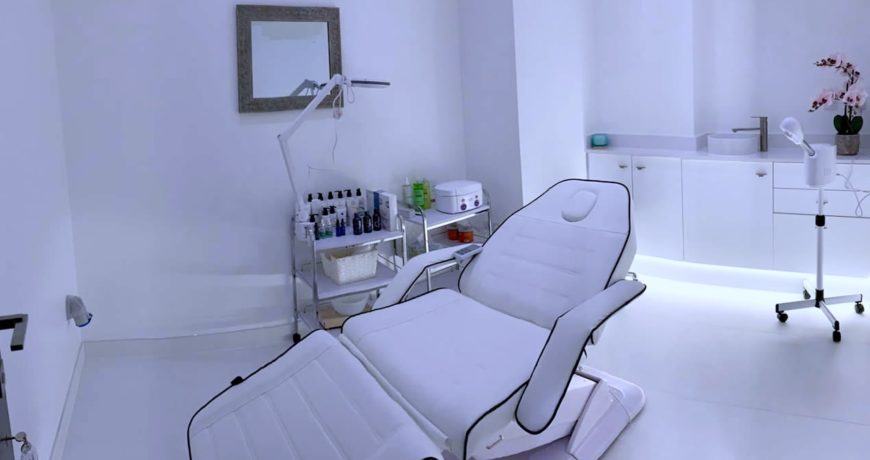No products in the cart.
Qualifications, Licenses & Insurance For Laser Hair Removal
Entering the business world, particularly in the competitive beauty sector, can be daunting. However, the laser hair removal industry is expanding rapidly. In 2023, the European market reached USD 171.21 million and is projected to soar to an estimated USD 457 million by 2027, as highlighted in this article. If you possess strong interpersonal skills, ambition, and seek a fulfilling career, this high-tech industry could be your perfect fit. However, before you start booking clients, there are several important factors to consider.
What Qualifications Do I Need for Laser or IPL Hair Removal?
To practice any beauty treatment, a minimum of an NVQ Level 3 (or equivalent) is required by law, along with an up-to-date listing on the Healthcare Register. It’s also advisable to complete a first aid and CPR course.
Additionally,there are specific training requirements that must be met to comply with local bylaws or regional regulations. These include having valid certificates of training from approved sources and completing a “Core of Knowledge” certification. By standard, all of our laser and IPL machines come with training, with certifications issued upon completion which is necessary to acquire insurance cover and satisfy your local council.

Do I Need a Licence to Perform Laser or IPL Hair Removal?
Laser hair removal practices, except those operated by the NHS, such as private practices and beauty salons, must register with and be monitored by the Care Quality Commission (CQC). However, practitioners using IPL or lasers solely for cosmetic purposes are not required to register with the CQC, even if they are registered medical practitioners. Licensing laws vary from council to council, certain local councils in England also require all practitioners using IPL and lasers to register with them. If a licence is required, your premises will be inspected for health and safety compliance before a certificate is granted. More information can be found here.
Is Insurance Necessary?
Insurance is considered necessary for carrying out laser hair removal treatments in the UK, even though it may not be a legal requirement at the national level. Here are the key points:
- Legal requirement by local councils: Many local councils in the UK have made insurance compulsory for laser therapists, including those performing laser hair removal
- Industry standard: Insurance is considered essential for laser hair removal practitioners to protect against potential claims and financial liabilities
- Types of insurance needed:
- Public Liability Insurance: Covers accidents involving clients or members of the public at your premises.
- Treatment Risk Insurance: Covers claims arising from the professional activities and treatments you provide.
- Products Liability Insurance: Protects against claims related to faulty products used on customers.
- Employer’s Liability Insurance: Required if you employ staff.
- Protection against risks: Laser hair removal can have serious consequences if something goes wrong, such as burns or permanent scarring. Insurance safeguards your business from potential personal injury claims.
- Qualification requirements: To obtain insurance, you typically need to hold valid certificates of training from approved sources and complete a “Core of Knowledge” certification as mentioned earlier.
Top Tips for Starting Your Own Beauty Clinic
Location Matters
The right location can significantly impact your salon’s success. It’s not just about choosing a trendy neighbourhood; several factors need to be considered:
- Affordable Rent: Commercial rents can vary drastically, so explore different options.
- Accessibility: Ensure your salon is easily accessible by foot and public transport, and has nearby parking, preferably free.
- Visibility: Your salon should be noticeable to attract walk-in customers.
- Street Lighting: Good lighting can make clients feel safer, especially during late appointments.
- Competitors: Assess the number of other salons nearby and what unique services you can offer. Consider visiting competitors to learn more.
- Target Market: Understand the type of clients you want to attract. For a trendy, fashion-forward crowd, choose a bustling area with a coffee culture. For an older demographic, a quieter location might be better.

Bigger Isn’t Always Better
Reflect on the salons you’ve visited. Do you prefer a cosy, intimate environment or a larger, airy space? A larger salon will naturally cost more to rent and heat, especially in winter. However, a smaller space limits the number of clients you can serve simultaneously and the range of treatments you can offer.
If you plan to hire staff from the start, they will need additional space for workbenches, chairs, and equipment. A larger salon also allows you to lease out rooms or chairs to freelance therapists, providing additional income without increasing your workload.
When choosing laser machines, consider compact and mobile options like the Nu TriLaze Plus. Although the initial investment may seem substantial, financing options are available, and the machine could pay for itself in about eight weeks with four average-priced treatments per day. Plus, you’ll receive free training, meeting one of the qualification requirements.
Crafting Your Business Name and Brand Identity
This part can be exciting – selecting a name for your new business and deciding on details like colour schemes and uniform designs.
Choosing a business name requires careful consideration. The name should be:
- Memorable
- Appealing
- Easy to read and pronounce
- Unique
- Available as a domain name
When decorating and choosing furnishings for your salon, select a colour scheme that reflects your brand image. Colours can evoke certain moods or feelings. For instance, blues and violets are known to induce relaxation, while yellows are associated with happiness, and greens symbolise vitality and health. Choose your colours wisely and extend the theme to your business cards, website design, and product packaging. For a professional look, consider staff uniforms in the same colour scheme.
Starting your own salon may seem overwhelming at first, but with the right guidance and thorough planning, you can turn your vision into reality. Various organisations offer support, providing a dedicated advisor and personalised support programmes. They focus on their expertise, allowing you to concentrate on yours, culminating in a successful salon.


